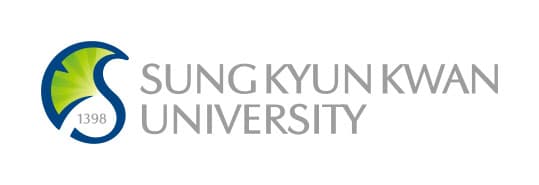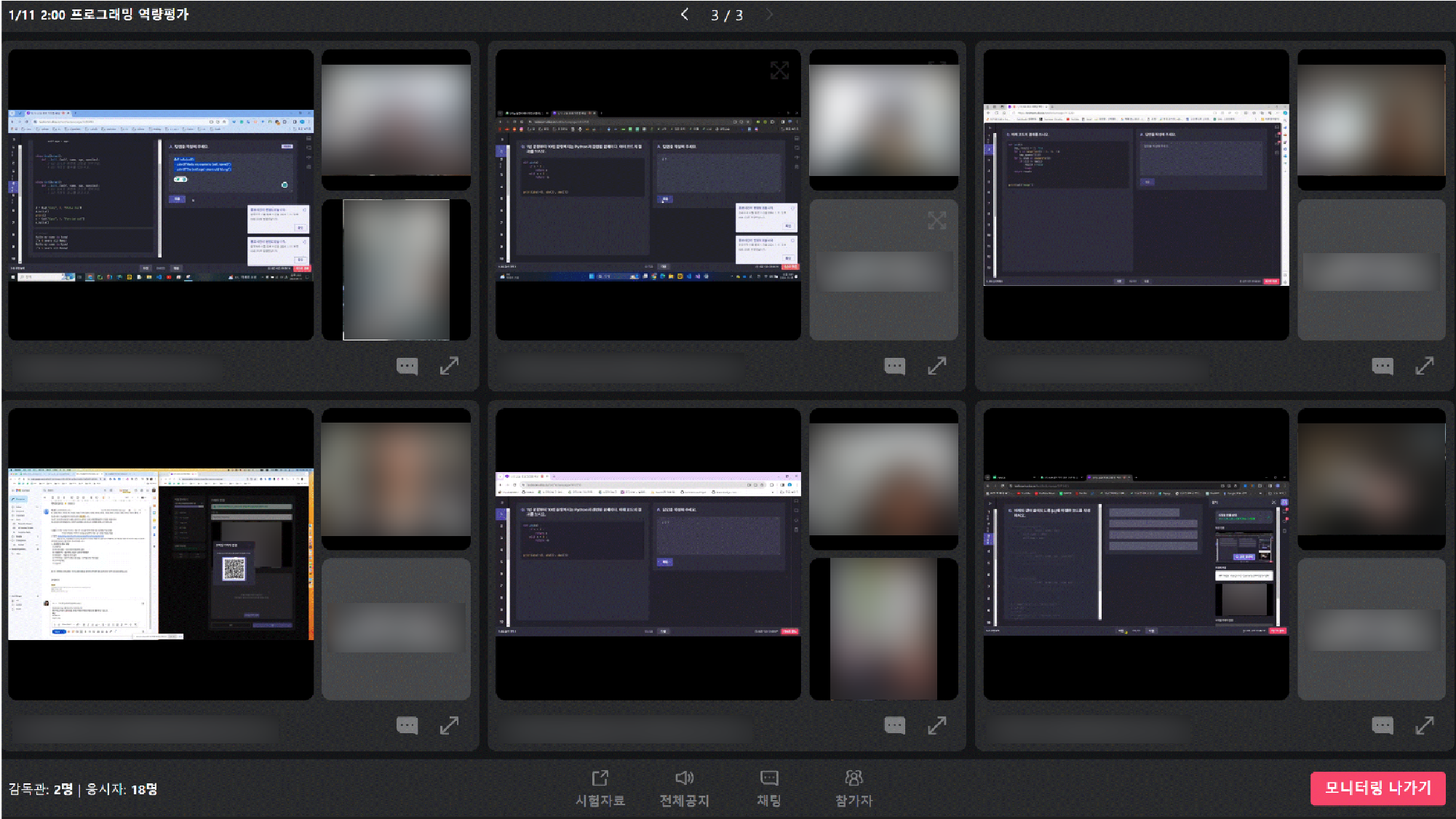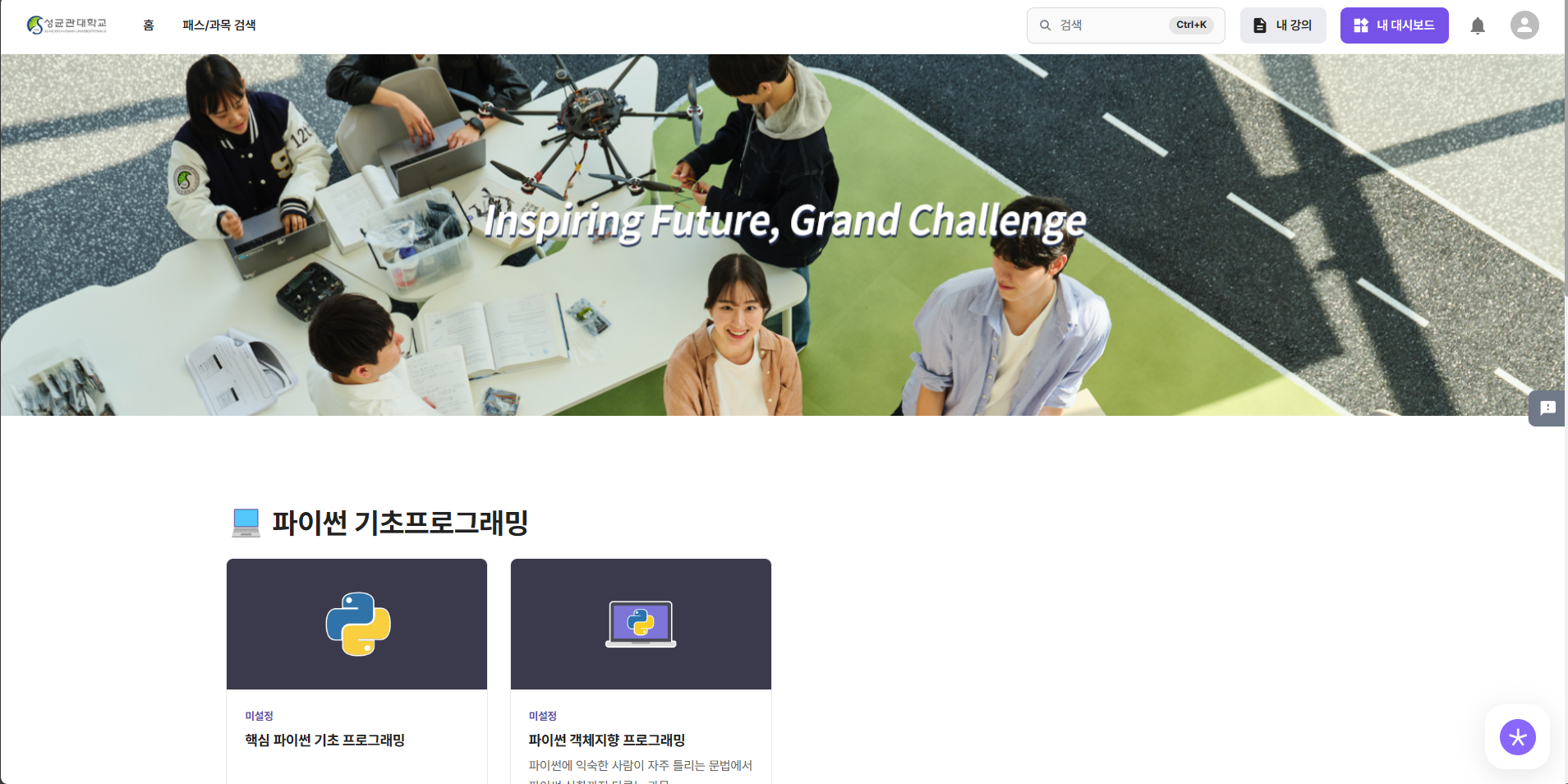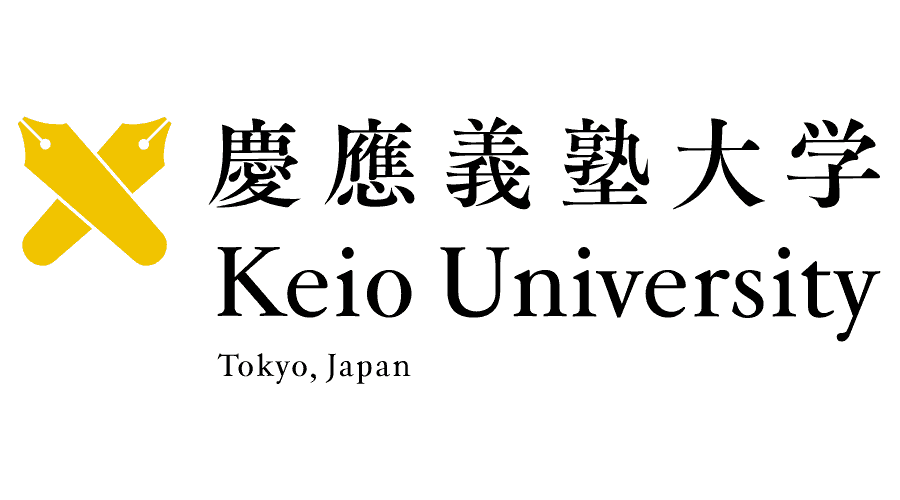
Solutions for diagnosing and improving incoming student competencies
Elice
2/26/2024

Industry, Regulation
Elice Product
Purpose
Admissions competency assessment and training
Sungkyunkwan University
Sungkyunkwan University, with a history spanning 626 years, is at the forefront of higher education innovation, embodying challenges, innovation, sharing, and co-prosperity. Guided by the motto ‘Inspiring Future, Grand Challenge,’ the university stands as a beacon of excellence, navigating the dawn of a new era. In 2023, it was honored by the Ministry of Science and ICT with selection for the ‘Metaverse Convergence Graduate School Support Project,’ leading to the creation of the Department of Immersive Media Engineering. This department is dedicated to nurturing versatile talents proficient in the entire spectrum of metaverse service development, from planning through R&D to commercialization. Its curriculum merges ICT technologies with the humanities and social sciences to underpin metaverse service realization, while its metaverse-focused research and courses, coupled with industry-academic partnerships, address real-world industrial challenges, fostering the growth of convergent professionals.
Sungkyunkwan University’s Department of Immersive Media Engineering is conducting competency evaluation and education with Elice to diagnose and educate new students. I met Yoo So-hee, who works at Sungkyunkwan University’s Intelligent Multimedia Research Center, and heard about the competency evaluation and education cases in detail.

Q. Could you introduce yourself and share what projects you’re currently involved with?
Hello, I’m Sohee Yoo, and I manage the planning and execution of various events, as well as both online and offline promotional activities for the Department of Immersive Media Engineering at Sungkyunkwan University’s Intelligent Multimedia Research Center. This department was inaugurated in the second half of 2023 as part of the government’s initiative to support Metaverse Convergence Graduate Schools. Emphasizing interdisciplinary studies, our student body showcases a diverse academic background, with a composition of 60% from science fields and 40% from the humanities.
Q. You conducted competency assessment and complementary education through Elice. Why did you choose Elice and what were your expectations?
I already knew Elice because I saw an interview with the CEO of Elice before. I was also a liberal arts student, so I had already encountered Elice while looking for coding lectures. When I came to Sungkyunkwan University’s Intelligent Multimedia Research Center and heard that I needed a programming competency assessment, I immediately thought of Elice and suggested it to the professor. Of course, I also considered and compared other competitors, and in the end, I chose Elice because I thought that its competency assessment and training were systematic.
Q. Who is the competency assessment conducted for, and what is its purpose?
The competency assessment is tailored for students admitted to the Department of Immersive Media Engineering, aimed at evaluating their fundamental skills necessary to navigate the department’s curriculum effectively. Given the department’s interdisciplinary nature, a key focus is on programming skills, acknowledging that some students, particularly those from liberal arts backgrounds, might not have prior programming experience. Conducted after admission, this assessment is crucial for identifying students’ basic competencies. Should their skills fall below a certain threshold, supplementary education through Elice is provided to elevate their competencies to the required level by the time of graduation. This step is deemed so vital that achieving a passing grade on the competency assessment is a condition for graduation.”
Q. What is the most important thing about the competency assessment?
The key to effective competency assessment lies in crafting question structures that precisely evaluate the targeted skill area. Before implementing the Elice Competency Assessment, I consolidated and shared the questions used by my professor with Elice. They then adeptly organized these questions to mirror the original difficulty level and structure, ensuring a nuanced and accurate assessment.
Q. What did you like about Elice Competency Assessment?
I was satisfied with the efficiency of the administration. It was easy and comfortable to manage from an administrative point of view, as it was seamless from question submission to scoring to training management. I also liked the fact that the administrator could supervise the test taker while viewing all three screens (webcam, monitor, and mobile screen) when taking the competency assessment.

▲ Competency Assessment Take Screen
Q. What changes have you seen before and after implementing Elice Competency Assessment?
Before Elice, the professors had to create the questions and manually evaluate them, which took a lot of resources. The tests were all manual, and the grading was also manual, so it took months to get the results back to the students. But after Elice Competency Assessment, we were able to quickly move from creating the questions to grading them. As an administrator, I think it was really nice to be able to see the results immediately after taking the competency assessment and get back to the students quickly.
Q. Based on the results of the competency assessment, remedial education is provided for students who do not pass. What are the goals of the remedial education?
The primary goal of the supplementary education is to raise the level of the students so that they can pass the competency assessment, so that they can build up their skills to the point where they can follow the curriculum of the department.
Also, the characteristic of our Department of Immersive Media Engineering is that we take care of students closely until graduation. The chairman of the department has a strong idea that students must graduate with the required competencies, so we provide free educational content to students and let them take retests to improve their competencies.

▲ Competency Complementary Training Domains
Q. What do you think is important in complementary education?
First and foremost, I think it’s important to be able to build competencies that can be utilized in practice, not just learn theory. What impressed me about Elice training was that the training content provided practical exercises along with theoretical lectures. It was great to be able to experience coding directly after learning the theory. This kind of hands-on training was one of the reasons I chose Elice.
Q. I was wondering if you have any further plans for competency assessment and training in the future.
We recruit new graduate students twice a year, so we plan to continue to conduct competency assessment twice a year, and we also plan to conduct supplementary training during vacation periods. :)
Would you recommend Elice to other organizations, and if so, why?
Certainly, I recommend Elice for its ability to facilitate swift and ongoing communication, a benefit stemming from their approach of assigning a dedicated point of contact to each organization. This personalized attention enabled us to tailor training programs and assessment questions to fit our specific needs seamlessly. Moreover, even our numerous, detailed inquiries were met with prompt and thorough responses, streamlining the management process significantly. For any organization in search of customized assessment or training solutions, Elice stands out as an excellent choice.
👉 Learn more about Elice test solutions
👉 Get an assessment and training consultation tailored to your organization
*This content is a work protected by copyright law and is copyrighted by Elice.
*The content is prohibited from secondary processing and commercial use without prior consent.









